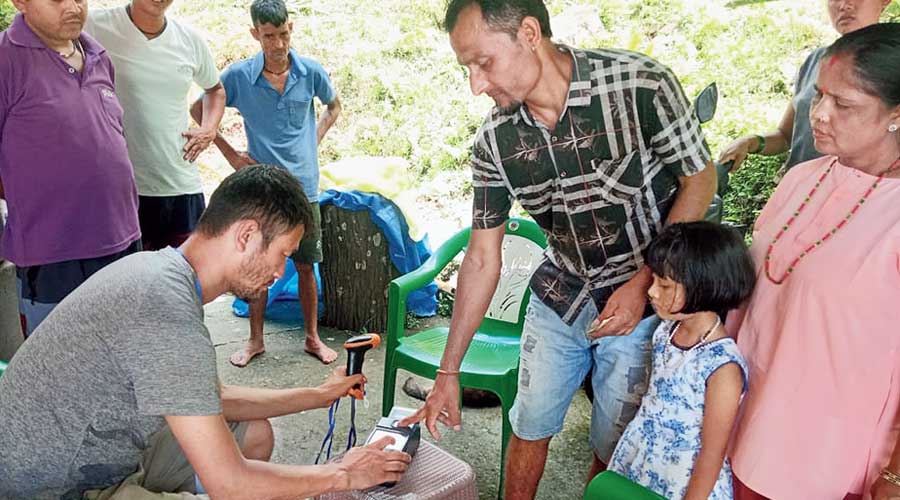Ration dealers in Darjeeling have sought exemption from “Duare Ration (ration on doorsteps)” in the hills citing high transportation cost owing to terrain and Internet connectivity snags, among others.
There are 614 ration shops across Darjeeling hills, including Kalimpong district, of which 111 shops have been brought under Duare Ration launched by the state government recently.
“Our dealers are facing various issues given the difficult terrain in the hills. It will be fair and just if the hills are exempt from further carrying on the project,” said Pemba Tamang, president, Darjeeling Gorkha Hill MR Dealers’ Association.
Under the Duare Ration scheme, ration dealers have to deliver food items at the beneficiaries’ door. Dealers get a commission of Rs 150 per quintal. “Everything (cost) has to be taken care of from this commission. In reality, our expenditure is at times more than commission,” said a dealer.
Dealers not under Duare Ration get a commission of Rs 75 per quintal.
The commission rate for both hills and plains is the same, which dealers maintain is unfair given the topography in the hills.
Ration dealers maintain in the hills all homes can't be reached by road and often there is no other way apart from carrying load on the head..“Head-load costs us a minimum of Rs 20 for a 50 kg sack (in labour charges),” said another ration dealer.
Ration dealers in the hills maintained that apart from transport cost of Rs 3,000 on an average, they have to hire two labourers at Rs 2,000, an electronic point of sale operator at Rs 800 per day, bear loading and unloading charges at Rs 1,200 and provide food for five persons costing Rs 500.
The total cost comes to Rs 7,500 per day, they said.
The other major problem cited by dealers is erratic Internet connectivity.
“Biometric authentication is mandatory for Duare Ration at the point of sale, but owing to network issues, in many places we can’t get the authentication done,” said Tamang.
Many dealers also said that many daily wage earners are not at home when they reach.
Dealers are expected to segregate beneficiaries in 16 clusters and mark a fixed distribution day in a month from the first Tuesday to the fourth Friday and stick to the days in the upcoming months.
“Most daily wage earners and tea garden workers can take ration only during weekends,” said a dealer.
Many dealers also complained that at sale points there are no provisions to charge e-POS weighing machines. “The E-POS machine gives a back-up of three hours while weighing machines have a back-up of four to five hours. Even charging these machines is a problem in the hills,” said a dealer.
On Tuesday, the association members submitted a memorandum highlighting their grievances to Rajya Sabha MP Shanta Chhetri. Chhetri, has reportedly assured the members to take up the matter with the state government.











